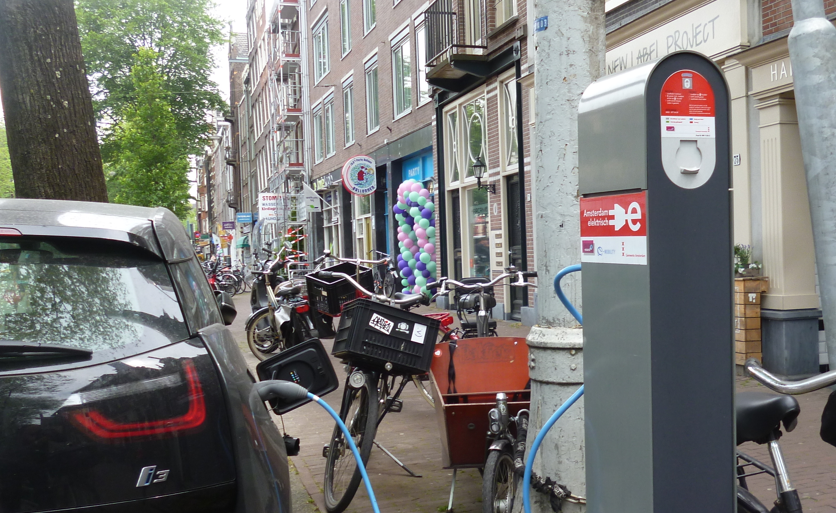Amsterdam brings in ‘bizarre’ plan to ban all but electric cars by 2030


Amsterdam city council has published plans to ban all but electric cars from the city by 2030 in a move that officials hope will extend locals’ life expectancy by three months.
From next year, diesel-powered cars which predate 2005 will be banned from the area within the A10 ring road and further restrictions will be brought in gradually as the plan is put into practice. The first evaluation will take place in 2022.
Amsterdammers, says alderman Sharon Dijksma, have their lives cut short by one year because of airborne pollution.
The most effective way to change this, she said, is to bring in emissions-free transport. ‘This is something the city council has a direct effect on, hence my mission to make Amsterdam the “world capital of emissions free mobility”‘.’
Last month junior environment minister Stientje van Veldhoven said she planned to give local authorities the opportunity to ban old diesel cars and vans by setting up ‘environmental zones’. Some 4,100 cars would be affected by the Amsterdam ban.
Dijksma’s plan envisages this environmental zone being gradually extended and then, once it covers most of the city, bringing in a complete ban on petrol and diesel cars in smaller areas. Nine streets in the city currently break EU pollution standards.
The city will need 16,000 to 23,000 charging stations by 2025 to make the project a success, she says. There are currently some 3,000 charging stations for electric cars in the city. Grants and subsidies will also be used to encourage motorists to make the switch.
‘The switch to emissions-free travel will require everyone to contribute: companies, residents and visitors,’ Dijksma said.
The city has already banned the most polluting vehicles from the area within the ring road and from 2022 buses and coaches will not be allowed in the city centre if they produce exhaust emissions.
Bizarre
Reactions to the proposals have been extremely mixed. The RAI Vereninging motoring lobby described them as ‘bizarre and impossible to put into practice’.
However Maarten Steinbuch, a professor at Eindhoven University of Technology, told broadcaster NOS that the plan should be seen as something to aim at. ‘We’ve still got 11 years,’ he said.
Electric cars are becoming cheaper and are already cheaper than petrol-driven cars to maintain, he pointed out.
The plans still have to be approved by the full city council, and before that they will be put out to public discussion.
Thank you for donating to DutchNews.nl.
We could not provide the Dutch News service, and keep it free of charge, without the generous support of our readers. Your donations allow us to report on issues you tell us matter, and provide you with a summary of the most important Dutch news each day.
Make a donation